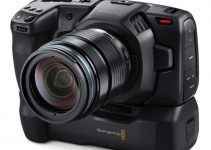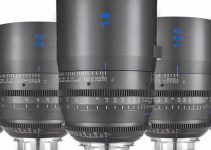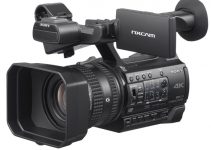There has been a lot of fuss in the Apple world regarding content creators. The quick jab and powerful uppercut Apple threw at us with the MacBook Pro 16″ and the Mac Pro have caught off guard a multitude of filmmakers, and many are now in awe trying to decide how to set up their desks.
Going to cheaper side of things, some folks are considering the MacBook Pro 16″, but is it really the better choice? Well, when you’re in doubt about purchasing a new editing machine, you can bet that Max Yuryev has already tested and benchmarked it, so let’s head to see what he’s found out.
In this case, Max is comparing the MacBook Pro against a wonderful machine, the Razer Blade Studio. Razer is well known as a gaming company, what is this “Studio” gimmick now, you may wonder.
Well, it turns out it’s not Razer after all, as the Studio laptops are PCs that get this certification by Nvidia, and that means they meet certain requirements that make them most suitable for creators.
Strangely enough, the price difference this time is in favor of Apple’s laptop. Now, the Razer has a few bells and whistles. It has a UHS-III slot (it’s not a typo! That’s so new we still haven’t card on the market) and a wonderful 4K display, but most of all it has an amazing Nvidia Quadro 5000 inside.
It has a newer CPU, but it’s an i7, while Apple offers an older generation processor but goes up to the i9. Seeing the troubles we’ve had in the past with thermal throttling on these chips all across the board, it seems that Razer went a more conservative way.
Right off the bat, there seems to be quite some difference, with the Mac scoring an average 35% more in Geekbench. The scheme repeats in Cinebench, but while the MacBook seems ready for takeoff, the Razer stands quiet and cool at around 75°C. The tables turn completely once the GPUs get into play.
The quiet following Razer takes the lead and leaps to almost 400% of the performances of the MacBook. Let it sink in. It’s almost four times faster!
Of course, some things are just too good to be true. Once unplugged from the AC power, the performances of the Razer drops down so much that they become again comparable to the MacBook’s, which closes in at about 20% less. The sheer size of the power brick should have made us guess the results.
Besides any kind of setting we can mess around in Windows, the truth is that when unplugged, the Razer Blade Studio simply does’t have enough juice to keep the Quadro going at full throttle, and thus, the system needs to step it down.
It seems to be a recurring problem with these high performances Windows laptops, to be fair to Razer, they are at least honest enough to tell you that in the settings, but still, the matter stands unchanged. The GPU alone can suck around 90W, and that goes beyond any battery in any laptop.
That means that if you have to edit on battery power, the MacBook is a much better choice. Not only that, but the MacBook can even be charged by a power bank, and that is a great option when you are on the go.
The rest of the tests go as expected. The GPU in the Razer leverages so much power that it wins almost always against the MacBook, even if not with such large gaps as we would expect. The problem is always when you unplug the power cord.
Razer’s performance goes down dramatically as it drops so far behind that it’s embarrassing. Now it’s true that some of us do not need to edit always on a plane or train, but that’s the reality for most of the creators that buy these laptops.
Nvidia’s NC enoding is offering great results if compared to Intel’s Quicksync to export videos. These are accelerating technologies that are used to speed up encodings. But then again, once we unplug the laptop, the advantage is lost and we’re back on having Quicksync as a winner.
It’s worth to note since HDR is getting so much traction lately, that when exporting HDR in Resolve, the Razer gets quite in front of the other laptop. If that is going to be your workflow, you should take this into account. Even if things change as a result of AMD GPU innovation in recent Macs, we still need to wait for some software tuning.
Closing in, as the tests have already spoken, and there’s no point going down this route. The Razer is a great laptop, a wonderful machine for those that need a workstation they can move around a bit, but it suffers for such a drop in its performance when on the move that you need to consider this drawback seriously if you’re going to purchase it.
It seems that after all Apple has really decided to care for the professionals again, and that is great news for all of us.
[source: Max Yuryev]
B&H Order Links:
Apple 16″ MacBook Pro (Late 2019, Space Gray)
Razer 15.6″ Blade 15 Multi-Touch Laptop (2019, Studio Edition)
Disclaimer: As an Amazon Associate partner and participant in B&H and Adorama Affiliate programmes, we earn a small comission from each purchase made through the affiliate links listed above at no additional cost to you.




